- How Much Weight Can You Realistically Lose in 3 Months? - January 14, 2024
- How To Lose 1kg a Week (Guaranteed) - August 20, 2023
- How To Count Calories (or Estimate) and Stay on Track When Eating Out at Restaurants - July 25, 2023

Fact checked by Lara Clevenger, RD. Find out more about Lara here: https://laraclevenger.com/
Do you feel like you’re not losing weight in a calorie deficit? You’re doing everything right; eating less calories, exercising, drinking plenty of water, getting 7-9 hours of sleep per night and managing stress, but despite all that, you’re still not losing weight?
You might even be counting calories, and making sure that you’re in a calorie deficit but getting no results. Don’t panic. There’s nothing wrong with you, and you’re not broken. There’s probably a very good reason why your calorie deficit might not be yielding weight loss results. Read on…
If you’re in a calorie deficit, you will (eventually) lose weight.
This is a fact.
You are not special and your body is not exempt from the laws of thermodynamics.
Now we’ve got that slightly passive-aggressive intro out of the way, let’s look at a few explanations as to why you might be in a calorie deficit (or so you think) but not losing weight.
How Long Have You Been in a Deficit?
This is the first question to ask yourself.
Just reducing your calories isn’t going instantly result in weight loss.
If you’ve been in what you think is a calorie deficit for a couple of days, or even a week, you simply need to be more patient.
How long it takes for a calorie deficit to work will vary from person to person, but almost no one will see immediate results.
You’ll typically need to wait at least 2-3 weeks before you start noticing the weight loss on the scale.
So, if you’ve been in a deficit for less than 2 weeks, you simply need to be more patient. If however, you’ve been in a deficit for longer than this (or think you have) then read on.
The Possible Culprits…
1. The Deficit Doesn’t Exist
This is the most common scenario and will be the situation for 99% of people that think they’re in a calorie deficit.
I’ve had people tell me in the past that they’re in a 1,000 calorie deficit and not losing weight. This simply isn’t possible – if you’re in a 1,000 calorie deficit per day, you WILL lose weight. No question about it. In fact, at that rate, you’d lose about 1lb every 3.5 days.
Your body will tell you if you’re in a deficit, not the other way around; i.e. if the scale is going down consistently, it means you’re in a calorie deficit, if it’s not, then you’re not.
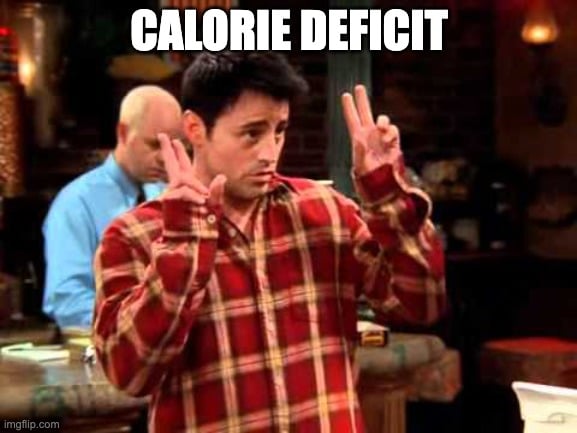
It’s that simple.
If you start eating fewer calories, your metabolism may adjust slightly to compensate, but not to the degree that it would actually stop you losing weight.
If you’re not losing weight despite a calorie deficit (or what you think is a calorie deficit), you either need to drop your average daily calorie intake, increase your activity or both until you start losing weight – as soon as that starts happening you KNOW you’re in a calorie deficit.
So why might you don’t actually be in a calorie deficit, even though you think you are?
2. You’re Not Tracking Your Calories Accurately
If you’re so damned sure that you’re in a deficit, your tracking had better be on point. There are many mistakes people make with tracking; including
- Not tracking everything – if you’re going to track, track EVERYTHING. That includes coffees (yes your Starbucks triple Frappachino with chocolate chips and whipped cream does have calories in – and lots of them), mayonnaise, that cheeky Fanta; all of it.
- Tracking cooked weight instead of raw weight – 100g of raw rice is very different from 100g of cooked rice – you can see the differences below. Don’t make this mistake
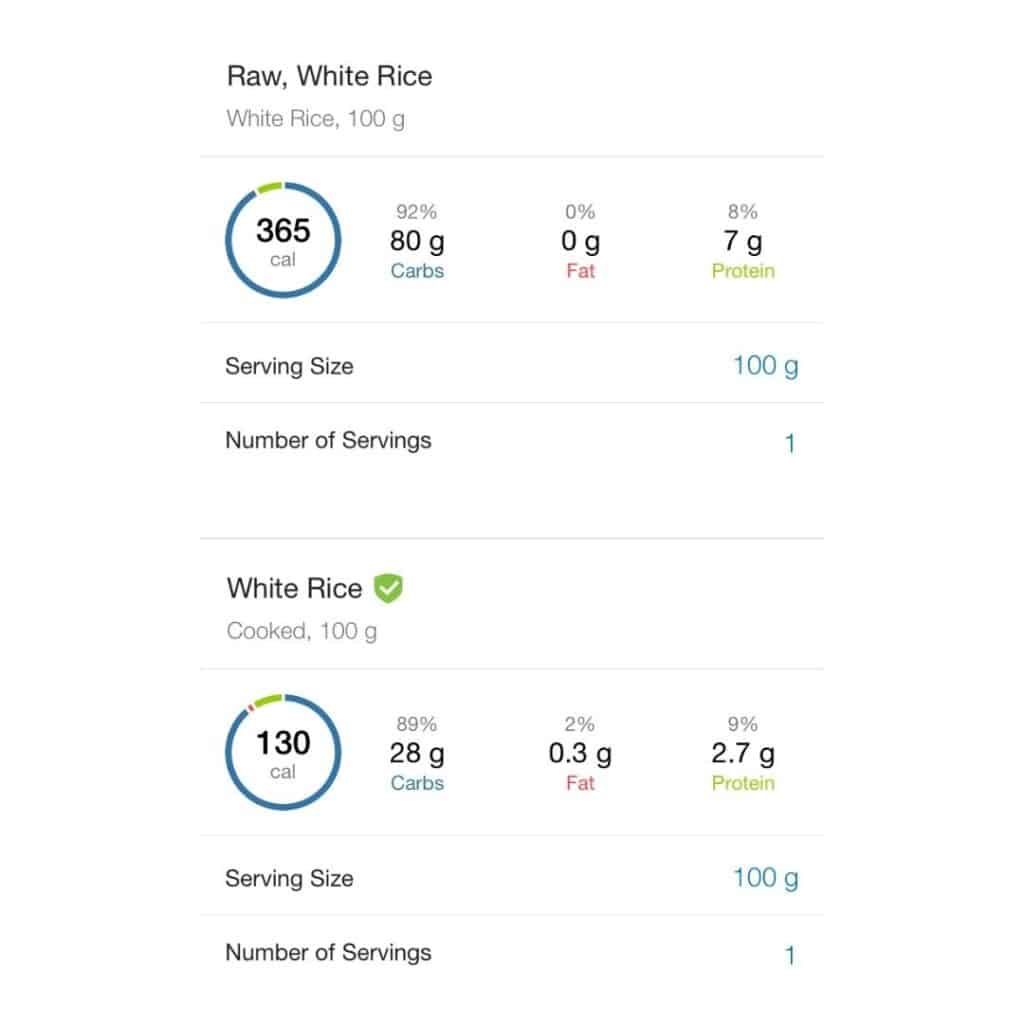
- Not tracking at weekends – contrary to what Karen in accounts says, weekend calories do count – your body doesn’t acknowledge that you deserve a ‘treat, so make sure you’re tracking every day.
WANT IN TO MY FREE 14-DAY FAT CLOSS COURSE? PUT YOUR NAME AND EMAIL ADDRESS IN BELOW;
3. You’re Overestimating How Many Calories You Burn Each Day
TDEE stands for total daily energy expenditure, i.e. the total amount of calories you burn on average per day – you can work it out here.
The problem is, many people take their TDEE estimation for granted – just because the calculator says you burn 2000 calories per day doesn’t mean you do.
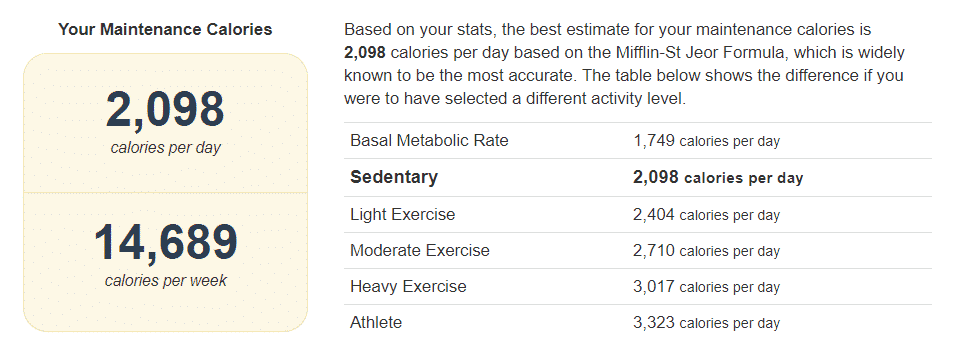
How do you know how many calories you burn each day? You don’t.
Pick a calorie amount that you’ll stick to each day -if you lose weight, you’ll know that this is less than your TDEE, if you maintain your weight, you’ll know that calorie amount is roughly your TDEE, if you gain weight, you’ll know that that calorie amount is more than your TDEE.
The other thing to be aware of is that if you lose a lot of weight, your TDEE will change because as you get lighter, your metabolism will come down so you’ll need to reassess your calorie intake at regular intervals, which leads me on to the next point….
4. Metabolic Rate Has Reduced
This is a very common culprit. Contrary to what most people believe, as you lose weight your metabolic rate will come down.
Yes, the lighter you are, the lower your metabolism will be. This is because your body doesn’t need to work as hard (and use as many calories) to move your body mass around, simply because there’s less of it.
This means that, if you weigh 80kg, eating 2500 calories per day may be enough to lose weight, but when you’re down to 70kg, you may well maintain your weight by eating 2500 calories, so you’ll need to reduce the number of calories you eat to carry on losing weight.
There are many factors that make up your overall metabolism however, and the one that will reduce as your weight comes down is your BMR (Basal Metabolic Rate).
This makes up the largest percentage of your overall metabolism, but you can get around it by doing more formal exercise and upping your NEAT (non-activity thermogenesis e.g. fidgeting, general movement).
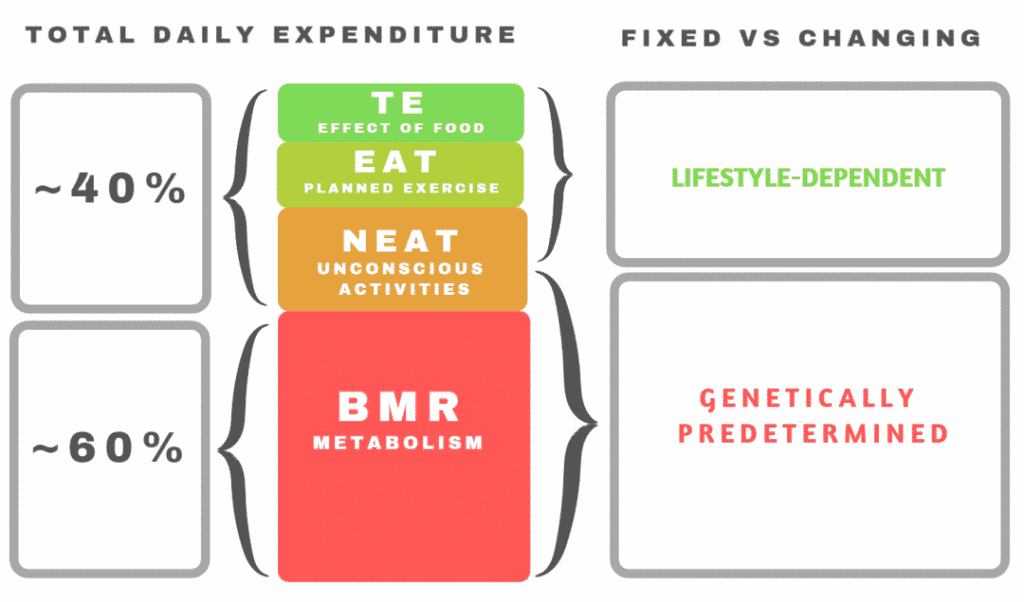
So, for example, if you’ve gone from 80kg to 70kg and you now need to eat 2000 calories per day to lose weight (rather than 2500), you could carry on eating 2500, but negate the extra 500 with 500 calories worth of exercise.
In short, the more weight you lose, the fewer calories you’ll need to eat. to maintain the same rate of weight loss.
5. You’re Eating Less Protein
This is more of a sub-point to the one above, but protein has a high ‘TEF’. TEF is the ‘Thermic Effect of Food, i.e. the number of calories your body uses digesting that food. Protein is more difficult for the body to break down than carbs or fat, so you’ll burn more calories digesting protein-rich foods than you will with carb or fat-based foods.
In fact, this study found that the TEF of protein can be 20%-30%, i.e. if you eat 100 calories of protein, 20-30 of those calories will be burned just digesting the protein!
This means, the higher the ratio of protein in your diet, the more calories you’ll burn doing nothing. Conversely, if you start eating less protein (but the same amount of overall calories), your TEF will reduce, which could be enough for your body weight to plateau or even increase.
6. You Could Be Gaining Muscle
Losing fat and gaining muscle at the same time, also called body recomposition is quite hard to achieve, and quite a rare scenario.
It is definitely possible to build muscle and lose fat in a calorie deficit, which could mean that your weight remains static or even goes up slightly.
Unfortunately, measuring your body fat percentage is a very time-consuming and expensive task. A DEXA scan is the most accurate way to get this data, but you’re looking at £150 a pop, and even this isn’t totally accurate.
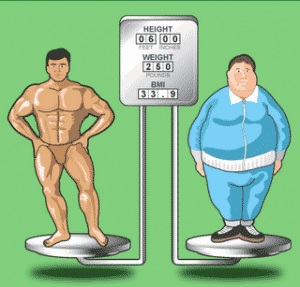
What is means is that you probably won’t be able to objectively measure if you actually building muscle in a deficit, but you can eyeball it in the mirror – and if you’re looking better, who cares what the numbers on the scale say?
It is normally complete beginners that can build muscle in a deficit, so it may be common for people who start lifting at the same time as they start their diet to experience slower or even no *weight loss* – in reality, what’s happening is they’re losing some fat and building some muscle.
Both of those things add up to a better physique, so if you’re gaining muscle but not losing fat, this isn’t necessarily a bad thing, because your body fat percentage will actually come down, and you’ll end up looking leaner anyway!
How do you know you’re gaining muscle? Well, if you’re getting stronger and not losing weight then it’s very likely that you’ll be gaining muscle. The best way to tell is by taking regular progress shots in the mirror. If your weight stays the same but your muscles look fuller and/or you look more defined, then you’re doing a good job!
7. You’re Weighing At Different Times Each Day
Weighing yourself every day is a really good idea, regardless of whether your goal is weight loss, gain, or maintenance.
You should however do this at the same time every day.
This is because eating and drinking throughout the day will make you heavier simply because the liquid and food is in your gut.
If you weighed yourself, drank a litre of water, and then weighed yourself again, you’d be roughly 1kg heavier (1 litre = 1Kg).
This means that if you weighed yourself on Monday morning, lost some fat (it would only be a tiny amount over the course of a day – but this is for demonstrative purposes), and then weighed yourself again on Tuesday evening, you’d likely be quite a bit heavier than you were despite losing some fat.
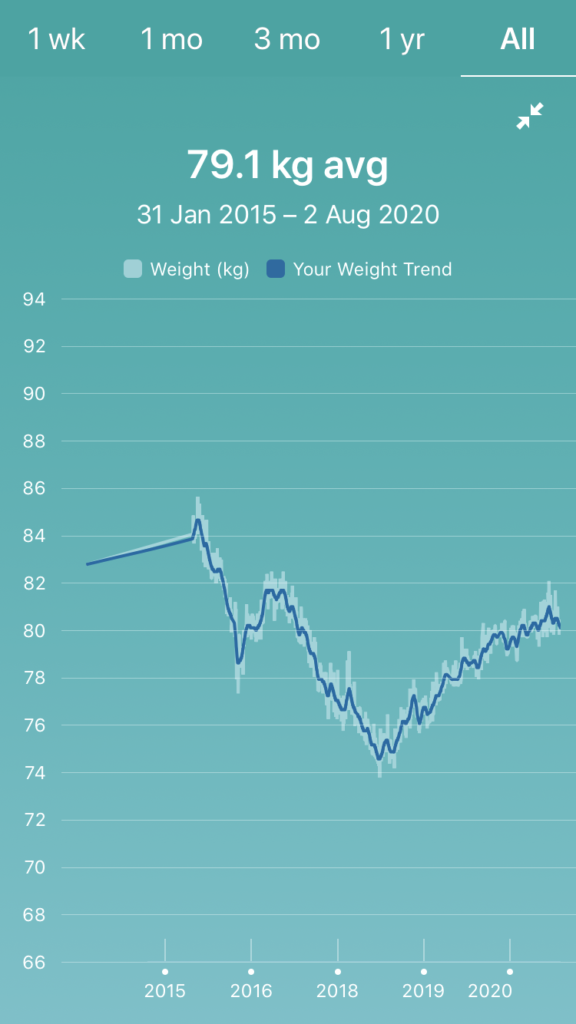
8. You’re Retaining Water
High-stress levels can have both an indirect and direct effect on your weight.
Indirectly, stress can lead to overeating as a coping mechanism. This study looked at the relationship between perceived stress levels and body weight in two groups. One group was subjected to intervention methods which included breathing and relaxation techniques. The intervention group reduced their BMI by twice as much on average compared to the control group.
The study suggests….
“The reduction in perceived stress levels in the intervention group, could have led to the adoption of healthier dietary habits and subsequent weight loss”
Xenaki et al, 2018
Stress management could therefore indirectly lead to more weight loss since there is less temptation to overeat.
From a direct point of view, increased water retention can happen if you’re stressed, or haven’t slept well (which can in itself create stress). Water retention can of course increase body weight and while it may not be fat, it can give you a bloated look.
9. You’re Eating Back Exercise Calories
If you’re using My Fitness Pal to track your calorie intake, that’s awesome, well done (that wasn’t meant to sound sarcastic).
There are a few things that lots of people get very wrong with My Fitness Pal, however. One of these is tracking ‘cooked’ rather than ‘raw’ or ‘dry’ weights of food (e.g. meat, pasta, rice), another common one is ‘eating back’ exercise calories.
My Fitness Pal will show you something like this;
See the ‘remaining’ number? Ignore it.
My Fitness Pal is saying that based on your calorie goal, and the calories you’ve burned working out, you can eat another 418 calories and still hit your goal.
The problem is, that the estimates of calories burned for a workout could be totally off.
The goal could be totally wrong as well (i.e. it might only be low enough to allow you to maintain your weight rather than actually lose weight), if the goal is too high for weight loss, any calories you eat back could tip you into a calorie surplus and actually result in weight gain!
Definitely use My Fitness Pal to TRACK calories, but you can ignore the calories ‘remaining’ – listen to your weight loss coach when it comes to target calories and when your calorie intake or activity should change, based on your goal.
EXERCISE CALORIES
IGNORE what your fitness tracker says about the exercise calories you’ve burned. You might think you need to reward yourself after running 10 miles but don’t. These calories should already be factored into your daily targets. If you’re syncing your tracker with My Fitness Pal; stop.
10. Your Mensural Cycle
For women, the menstrual cycle can also play a part in weight fluctuations. Again this is usually down to water retention, so take this into account if your weight increases on or around your period.
11. You’re Not Sleeping Enough
There is a strong correlation between lack of sleep and higher bodyweights. It is thought this is because lack of sleep stimulates ghrelin, the hormone that stimulates hunger. This study found that less sleep meant greater ghrelin production
Another study found that calorie intake was 14% higher in a group that got 4.5 hours sleep compared to a group that got 8.5 hours sleep.
Of course, getting less sleep doesn’t automatically result in weight gain on it’s own, but it could mean that sticking to a calorie goal is more difficult because the drive to eat is greater.
12. You’re Eating ‘Clean’ or Doing Keto
‘Clean Eating’ is a diet methodology that prioritises whole, unprocessed foods and maximising nutrient density.
From an overall health point of view, this is sensible, but it may not go hand-in-hand with weight loss.
A ‘clean’ diet is one that includes lots of fresh veggies, fewer carbs and more high-fat foods like salmon, nuts, oils, eggs and avocados; these are all fantastic foods to include in your diet BUT they are all high in calories (gram for gram), this means if you purely focus on nutrient density, you might think you’re eating healthy, but still gain weight because your calories are too high.
There are certain foods that will help you get into a calorie deficit, but regardless of WHAT you eat, calories are still crucial if you want to lose weight. So track them!
13. You’re Working Out Too Much
I get it, it makes total sense that you’d start exercising more if you wanted to start losing weight. It’s been hammered into us that several sweaty HIIT sessions per week are essential if you want the fat to melt away.
This simply isn’t the case, however. Not only is this type of exercise not necessary, it could also be undermining your efforts to stick to a calorie deficit.
Exercise stimulates hunger, so if you burn 250 calories in a HIIT session, that’s great, but if it makes you hungry to the point where you eat an extra 350 calories, you’ve actually done more harm than good because you’re in a net 100 calorie surplus.
So, if you’re asking yourself you’re not losing weight even though you’re in a calorie deficit AND working out, it could be that the intensity and frequency of your workouts are actually taking you OUT of a deficit!
So don’t overexercise, treat working out as a way to ‘assist’ your efforts rather than take the driving seat.
14. You’re Too Impatient
I know, I know, you have a holiday coming up soon and you want a six pack.
Well, chances are, if you’ve left your diet until 3 weeks before you’re due to go, that’s not going to happen. Just forget it. Sorry.
Fat loss takes time so you need to be patient. A sustainable rate of weight loss will be around the 1% of current body weight loss per week. That means if you weigh 100kg (220lbs), you should be looking to lose around 1kg (2.2lbs) per week.
Of course, this means that in order to lose 10% of your body weight, you’re looking at over 10 weeks (3.5-4 months) of dieting. So, dieting is NOT a quick process, and if you are genuinely in a calorie deficit but not losing weight, you might just need to wait a bit longer to see that weight loss!
15. Your Calorie Deficit is Too Big
Before we go ahead with this one, it’s important to say that in reality, your deficit can’t be too big. The bigger the deficit you’re in, the faster you’ll lose weight.
The problem is, big deficits are hard to stick to.
I’ve had people come to me telling me that they’re in a 1,500 calorie deficit and not losing weight.
This simply isn’t possible.
A genuine 1,000 calorie would mean you losing about 1kg (2lbs) per week, every week (on average).
I’ve also had people tell me they are eating less than 1,000 calories a day and not losing weight. Again this is virtually impossible unless you’re already very light (around 50kg)
So how can large deficits prevent you from losing weight?
Well, the larger the deficit, the less likely it is you’ll maintain that deficit consistently enough, so yes, your intended deficit may be far too big.
It’s far better to aim for a conservative deficit of around 500 calories per week. This is a level that most people can stick to, that will produce sustainable weight loss.
16. You Think Just ‘Counting Calories’ is Enough
Ok, you’ve accepted that you need to count calories, great.
So you start counting calories but you’re still not losing weight.
What’s going on?
Well, although counting calories is the first step, you need to make sure the calorie amount you’re eating is right.
If you’re eating 5,000 calories you won’t automatically lose weight just because you’re counting
17. You’re Too Fixated on A Specific Number
I get people coming to me telling me they’re eating 1,500, 1,000 or even 800 calories a day and still not losing weight.
There is no universal magic, specific number of calories that you need to be eating which will produce weight loss for everyone.
Some people might need to eat 1,200 calories to lose weight, while other people can drop weight on 2,500+ calories.
The other thing to be aware of is that, as you lose weight, your metabolism will reduce, meaning that if you started off losing weight eating 1,600 calories (for example), that might need to come down to 1,400 calories (for example) at some point, if you want to continue losing weight.
A weight loss coach will be able to help you stay on the right amount of calories to keep generating results.
18. You’ve Hit a Plateau
Even if you are in a calorie deficit, you WILL stop losing weight at some point. And it’s not your fault.
You’ll find that, if you’re on a streak of weight loss by eating a certain amount of calories, the rate of loss will eventually slow and stop.
Why?
Well, as you become lighter, your body needs fewer calories to move around and generally just stay alive. And that means that in order to lose weight, you’ll need to eat fewer calories.
Let’s say you started off at 200lbs, you started eating 2,000 calories a day and were losing weight at around 1lb a week. But now you weigh 180lbs and you’re not losing weight anymore. that’s because 2,200 calories is now your maintenance.
If you want to carry on losing 1lb a week, you may need to reduce your calories down to around 1,700 per day. That will break your plateau, and allow you to carry on losing weight.
| INITIAL WEIGHT | MAINTENANCE CALORIES | CALORIES REQUIRED TO CREATE 500 CALORIE DEFICIT |
| 200lb | 2,500 | 2,000 |
| 180lb | 2,200 | 1,700 |
| 160lb | 2,000 | 1,500 |
N.B. The numbers used above are just examples, actual numbers will vary depending on the person, their activity levels and overall lifestyle
19. You’ve Experienced The ‘Whoosh’ Effect
The whoosh effect usually happens when you cut out carbs completely or go Keto.
The name comes from the sudden, fast ‘whoosh’ of weight loss you get when you totally restrict carbohydrate intake.
Carbs (rice, pasta, bread, potatoes) are stored as glycogen within the muscles and the liver, however, for every gram of carbohydrate you store, you also store 3g of water. This means that once you’ve used up your carb stores (and you have no more coming in), you’ll lose an of water weight.
While this might be motivating, and look good on the scales, you haven’t actually lost any fat.
This is why some people will experience a big initial loss, followed by a plateau.
You need to make sure you are definitely in a calorie deficit, rather than just cutting out carbs and assuming that’ll put you in a deficit.
20. You Have a Medical Condition that Affects Your Ability to Lose Weight
I’ve put this near the end because many people instantly assume they have a medical condition when they first attempt to lose weight and fail.
For 99.9% of people, this simply isn’t the case, however there are some conditions that can affect your ability to lose weight.
These include;
- Thyroid conditions: Hypothyroidism (an underactive thyroid) can slow down your metabolism, making it harder to lose weight.
- Polycystic Ovary Syndrome (PCOS): PCOS is a hormone disorder that can cause weight gain and make it difficult to lose weight.
- Cushing’s syndrome: This rare condition occurs when your body is exposed to high levels of the hormone cortisol for a prolonged period of time. It can cause weight gain, particularly in the abdominal area.
- Depression: Depression can cause a loss of appetite or an increase in appetite, which can lead to weight gain or difficulty losing weight.
- Certain medications: Some medications, such as steroids and antidepressants, can cause weight gain as a side effect.
- Sleep disorders: Chronic sleep disorders, such as insomnia, can disrupt the hormones that regulate hunger and fullness, leading to weight gain
It is important to remember however that these conditions can make it harder to lose weight, but NOT impossible. Regardless of any medical condition you have, if you eat less calories than your body needs to sustain its weight, you WILL lose weight.
If you believe you have any of these conditions, speak to a medical doctor before you attempt to start a weight loss diet.
21. You’re on Medication
You may not have any of the medical conditions above, but you may be on medication for something else that could impact your ability to lose weight.
Types of medication that can hamper weight loss include;
- Antidepressants: Some antidepressants, such as tricyclic antidepressants and selective serotonin reuptake inhibitors (SSRIs), can cause weight gain.
- Antipsychotics: Medications used to treat mental illnesses, such as schizophrenia and bipolar disorder, can cause weight gain as a side effect.
- Steroids: Corticosteroids, a type of steroid medication, can cause weight gain, particularly in the abdominal area.
- Diabetes medications: Some diabetes medications, such as insulin and sulphonylureas, can cause weight gain.
- Beta blockers: These medications, which are used to treat high blood pressure and other conditions, can cause weight gain as a side effect.
If you are concerned about the side-effects any medication is having, please speak to your medical doctor.
Summary
There are very few reasons why weight may not decrease despite being in a calorie deficit, and those reasons are quite rare – so if you think you’re in a calorie deficit, check all of the above first.
And yes, for most people, a 1,000 calorie per day diet WILL result in weight loss, even if you’re inactive.
Still Don’t Believe Me?
I know, you’re still skeptical.
You’re asking yourself ‘why am I not losing weight in a calorie deficit, still convinced that are you definitely in a deficit.
Well, you might be.
But it might be that you’re only in a deficit occasionally (e.g. 5 days out of 7), or that you’re just not in a deficit for long enough to see noticeable weight loss.
A consistent, long-term calorie deficit WILL result in weight loss.
This is the before and after shot of one of my clients that I helped implement a calorie deficit over a period of about 5 months.

She lost around 15lbs of fat by using a calorie deficit consistently.
What if You’re Gaining Weight in a Calorie Deficit?
If you think you’re eating less but gaining weight over the long term, i.e over a period of several weeks or months despite being in a calorie deficit, then you are 100% categorically NOT in a calorie deficit. That’s a fact. Instead, this means that you’re in a calorie surplus, i.e. eating more calories than you use on average each day.
However, if you gain weight in the short term, i.e. over a couple of days or even a whole week, this is likely to be natural fluctuations, which could be anything from;
- Food still being in the gut
- Water being in the gut
- Water retention at a cellular level from stress
- A recent high intake of carbs
It is important to remember that weight loss is NOT linear. This means that even if you are in a calorie deficit and losing weight in the long term (weeks and months) you could still gain weight in the short term (day-to-day).
Below are real weight loss results from one of my clients. The trend line (the straight, faint line) shows the overall long-term trend, but the thicker line shows the actual weight on a day-to-day basis – look how much it moves around!
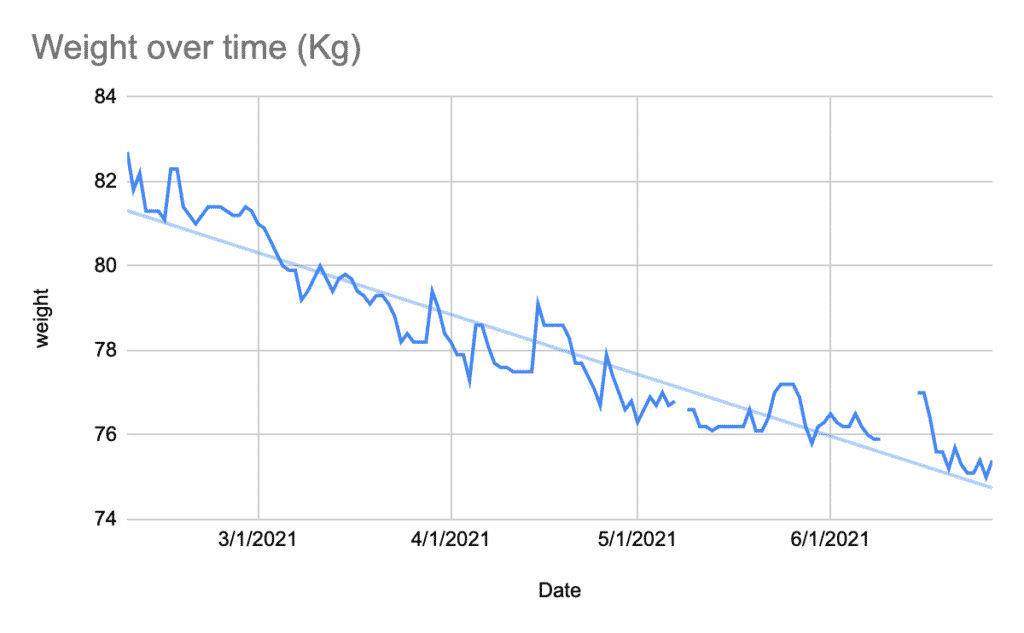
So, gaining weight during a period when you’re in a calorie deficit is totally possible and normal – don’t worry about it!
The Solution…
As mentioned, If you’re not losing weight, then you’re not in a deficit.
In order to test how many calories is enough to put you in a deficit, you need to measure and track.
Measure your calorie intake, steps, and weight on a daily basis. If your weight hasn’t decreased after 10 days, reduce the calorie intake, and monitor for another 10 days. Keep repeating the process until your weight starts coming down – then you’ll know for a fact you’re in a deficit.
- Find Your Maintenance Calories Use a tool like the TDEE calculator to help you do this. But remember, the number it gives you is an ESTIMATE, so don’t treat it as gospel truth
OR just use my handy calorie deficit calculator right here;
2. Create a Calorie Target Whatever number the TDEE tool gives you, take 10% off. So if the TDEE calculator says you burn 2000 calories in a day, take 200 calories off, leaving you with a target of 1,800 daily calories
3. Track Stick to that calorie amount daily for 3 weeks. Weigh yourself every morning and write it down or record it. Track your calories ACCURATELY in My Fitness Pal. Make sure you do about the same amount of exercise each week.
4. React If after 3 weeks, your weight hasn’t started coming down, take another 10% off your daily calorie target. Repeat until weight loss starts to happen.
5. Be Patient DON’T be tempted to go super low on calories. You should aim to maintain a healthy calorie deficit of no more than 500-1000 calories per day.
When your weight goes down – you know you’re in a calorie deficit!
Other Calorie Deficit FAQs
Is it Possible To Be In A Calorie Deficit and Not Lose Weight?
No. At least not over a long period of time. Regardless of whether you’re in a deficit or a surplus, your weight will fluctuate on a daily basis, but if you’re genuinely in a deficit over a long enough period of time you WILL lose weight, guaranteed.
Why Am I Eating Less and Not Losing Weight?
Just because you’re eating less than you were before doesn’t mean you’ll definitely lose weight. Calorie balance is about calories in AND calories out. If you eat less, but you do less activity as well, your weight could stay the same or even increase.
Why Am I gaining Weight While Dieting and Exercising?
if you’re training with weights, you could be gaining muscle. If your level of body fat stays the same, this does mean that you’ll gain weight, BUT you’ll end up looking better because the fat will be spread over a larger surface area.
How Many Calories Should you Eat to Lose 5 Pounds (roughly 2kg) a week?
Losing that much weight on a weekly basis is unsustainable. Most people should look to lose around 1-2lbs per week.
How Do I Know If I’m In a Calorie Deficit?
If over a 2 week period, you’ve lost a significant amount of weight (2lbs and upwards) you can be pretty sure you’re in a calorie deficit.
Should Women Eat Any Less Than men to Lose Weight?
When it comes to weight loss, women’s bodies don’t work any different, but women will GENERALLY need to diet on fewer calories than men because they weigh less which means they have slower metabolisms.
Is 800 Calories a Day Safe?
It’s safe, but for most people, it’s going to be unsustainable. You should look to diet on as high a calorie amount as possible. Dieting on super low calories will only lead to a binge and restrict cycle, and eventually giving up and going back to the way you were eating before.
Can Eating Too Little Make You Gain Weight?
No.
Is a Calorie Deficit Enough To Lose Weight?
Yes, provided you’re in a calorie deficit, you WILL lose weight. A deficit on its own is enough to produce weight loss, you don’t need any fancy meal plans, fad diets or extreme workout plans, just a sustainable deficit of between 500-750 calories per day
Why Am I Eating 1,600 A Day and Not Losing Weight?
There is no ‘magic’ number of calories you need to eat each day to lose weight, the number that you need to eat will differ from person to person. 1,600 calories will be enough for most people to lose weight, but if you’re very inactive, or you’re already light, it may not be low enough to drop weight.
Can You Gain Fat In a Calorie Deficit?
Gaining fat in a deficit is technically possible, but you’d also need to lose a LOT of muscle for that to happen. For most people however, this is highly unlikely
References
Impact of a stress management program on weight loss, mental health and lifestyle in adults with obesity: a randomized controlled trial: https://www.ncbi.nlm.nih.gov/pmc/articles/PMC6296480/
Diet induced thermogenesis: https://www.ncbi.nlm.nih.gov/pmc/articles/PMC524030/
Insufficient sleep undermines dietary efforts to reduce adiposity: https://www.ncbi.nlm.nih.gov/pmc/articles/PMC2951287/
Sleep and obesity: https://www.ncbi.nlm.nih.gov/pmc/articles/PMC3632337/#R43
Conditions That Can Cause Weight Gain: https://www.webmd.com/diet/obesity/ss/slideshow-weight-gain-conditions
Medications that cause weight gain and alternatives in Canada: a narrative review: https://www.ncbi.nlm.nih.gov/pmc/articles/PMC6109660/
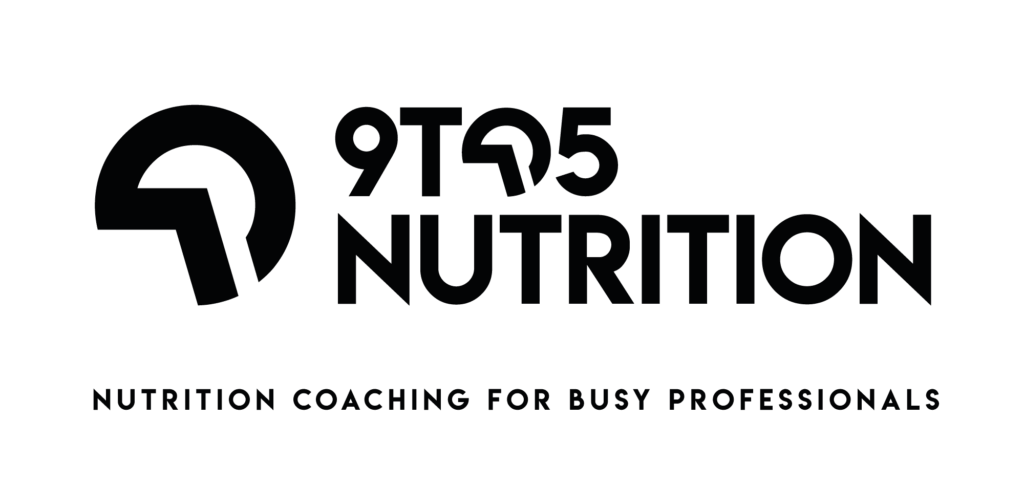
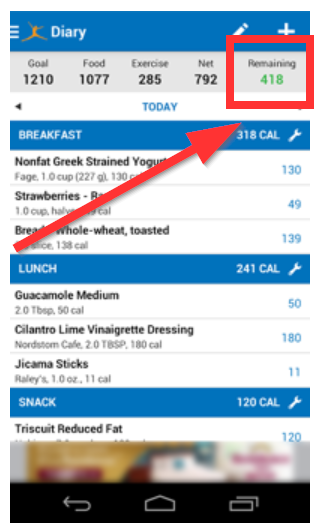
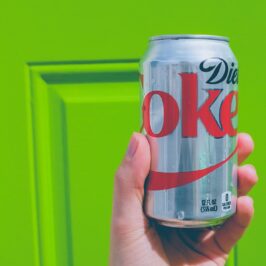
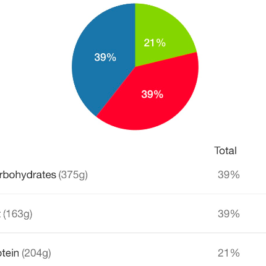
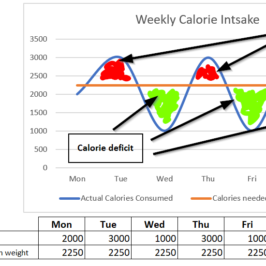

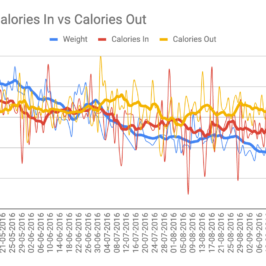
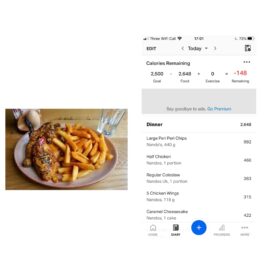
Sharon Lamont
I’m a 58 year old female, using a fitbit to track my exercise and calorie intake, which is consistently lower than energy expended, but, I’m not losing weight. I have around 2.7stones to lose. Do you have any advice?
Joe
Hi Sharon.
It sounds like your fitbit could be overestimating the number of calories you use on a daily basis.
I’d be happy to jump on a call if you want to chat it through?
Joe
Hi Sharon, thanks for the comment, I’m going to drop you an email!
Melvyn
Hi there i am a 67 small male i walk one hour a day i do 20 mins of pilates 6 days a week and 3 days a week i do 1hour of full body workout on dumbbells Monday to Friday i stick to 1200/1300 calories sat and sun I stick to 1500/1700 calories i don’t count my exercises calories so why am I not losing weight
Joe
Because you’re not in a calorie deficit.
You either need to lower your calories or up the amount of activity, you do.
If you want some help, get in touch
Alex Chahine
I’m am 16 years old and started a calorie deficit when I was 15 weighing in at 164 lbs. I now weigh 142 and eating 1600 calories a day. I still have a good amount of fat on me but I don’t want to drop anymore calories. I am maintaining weight at 1600 calories but I am also building muscle while maintaining. My brother suggested that I up my calories by 100 and keep weight training. But I feel like I would just get less lean. (I’m 5’11) ( I’m not hungry on 1600 calories because I’m eating low calorie dense foods). Idk what to do.
Joe
If you’re building muscle and maintaining your weight, I;d say carry on. That’s a great place to be.
Alice
Just want to say this is an excellent article. I was curious to know if it was possible to be in a calorie deficit and not lose weight and this is the first article I found that was willing to call a spade a spade and say if you’re not losing weight you’re not in a deficit! Every other article I found was waffling on about other things, “don’t just cut cals” “do this” “do that” but none clearly laid out the basic fact that if you have a deficit of a 1000 a day you will lost weight for sure. (Though of course I get that how healthy or unhealthy you are depends on other factors as well)
Apart from that you gave so many interesting tips like the one about cooked vs raw. I’ve been reading about weight loss for what seems forever and that was new to me. Thanks, great job!
Joe
Thanks Alice, I like to call a spade a spade – there’s so much disinformation out there and I’m trying to simplify weight loss for people!
If you need any 1-2-1 help you know where to find me!
Nadia
I’m trying to lose a few pounds that I’ve put on during lockdown. I’m 42 and pretty active. I generally watch what I eat when I’m trying to shift some weight but despite trying for a couple of months, I haven’t lost a pound. I aim for 1200 calories a day and I’ve been tracking what I eat religiously- it was showing I wasn’t eating enough – it was around 800 calories a day so I’ve upped the intake with sensible choices but still no change on the scales.
Joe
Hi Nadia,
Thanks for reading, and for the comment!
This is a really common issue and I’d love to help you out – I’m going to drop you an email!
Kelly Lowe
I’m in the same boat. 44, moderately active, been at 1200 calories for 3 weeks but show not change- my weight fluctuates a lot within 5 lbs throughout the month but I hoped for it to go down. I can’t see eating less than 1200 calories- I eat clean. Thanks.
Joe
Hi Kelly, how much do you weigh?
Sarah
Is there a post about dry/cooked/raw food and inputting these onto calorie counting apps?
I’m trying to lose weight, have altogether lost about 8.5kg, but have another 11kg to lose – for the last 2 weeks i’ve lost nothing, despite keeping to my calorie deficit – i am going to start ignoring the number of excess calories burnt on my fitness app as this suggests to see if that works for me. But it’s so infuriating to be putting in all the work and see no change when it was working just fine for me before these last 2 weeks!
Joe
Hi Sarah, you’re in luck, I have a post on exactly that! Here it is below;
https://9-to-5-nutrition.com/should-you-weigh-your-food-raw-or-cooked/
Lots of people struggle with this – I’ll drop you an emai!
Marco Roberto
Hi Joe. Hope you are OK. I’m 187 cm tall, 104 kg, with +-23% body fat. My TDEE is 2957, less 10% is 2661. If I reduce it for 500, to lose weight, I will eat 2161. I was eating 2300 and not droping weight. I have a desk job but I do 50/60 minutes of bodybuilding 6 times a week and I also try to walk a litle. This month my average is 8.807 steps, accourding to my watch app. I will try to eat 2150 and see what happens. I track my food with myfitnesspal. (40% protein+20 fats+40 carbs). Whats your opinion on this? Thank you and regards.
Joe
Hi Marco,
There’s some more information I need before I can make an informed judgement, I’ll shoot you an email
Marco Roberto
Forgot to say I’m 47 years old.
George
Hi Joe,
Fantastic article. Like many here, I’ve been a victim of the lockdown and made some new years resolutions that I’ve stuck to thus far to get back to my weight from my early 20s.
Since 4Q 2020 (5-6 months), I probably lost a good 40-45 pounds. I was less active and didn’t count calories, but i was conscious of food choices and saw good results. around the last week of March, I stepped up my exercise from 20 mins to 75 mins (average) per day and began counting calories on Fitbit. My daily deficit is (showing) close to 1300-1500 cals but i haven’t lost a single pound in over 3 weeks (actually i’ve gained 1-2 lbs). I’m hoping this is a re-comp issue as I’m pretty sure my tracking is spot on. I’d like to lose another 40-45 more. Any advice?
Joe
Hi George, thanks for the comment, I may be able to help – I’ll shoot you an email
isabelle
I have been on and off calorie counting for years and honestly cant seem to strictly stick to my 1500 calorie goal, Im thinking should i just reverse diet and build myself back to maintenance and try not track for a few months to give my mind a break or just really nail down. Part of me is also worried iv just stuffed up by body by eating super low one day high the next then stressing about it non stop as well over the years.
im 23, eat a pretty healthy plant based diet and work out at least 4 days a week with strength training and my daily steps are always 15k plus. And i know so many people who dont work out at all and eat crap and have so much less body fat than me. I just dont know which way to go now , feeling a bit hopeless and blaming that maybe counting calories has just put my body under too much stress ? idk
Joe
Hi Isebelle, what’s your current goal?
Liz
Hi Joe, thanks for writing this article! Nice to see it all laid out straight.
I’m a 28 year old female, 5’5, 175lbs, 3 months post partum and nursing. I’ve been on a 500 calorie/day deficit (eating about 1693/day) trying to slowly shake off some baby weight, but I’m running into some issues. I’m not counting calories burned by nursing cause I have bad habit of eating my calories back, but I don’t seem to be making much progress.
I’m going to try to make sure I’m on a better sleep schedule, but have you heard of anything about metabolism changes for nursing? A lactation site was saying that eating at a deficit while nursing can make you gain weight, and that just sounded weird. My milk supply is doing fine, so I haven’t been worried. ????????♀️
Thanks!
Joe
Hi Liz,
There are many permanent o semi-permanent conditions that can affect your metabolism, BUT – calories in calories out still applies.
It’s absolutely NOT possible to gain weight if you are in a deficit
Think about it like this – if you were locked in a room for a month with no food; would you gain weight? (the answer is no!)
Tessa
Been on a calorie def. 1500 my total each day . for 2 weeks and follow a food intake and everything else on my fit bit . Ive started to do 2 15 mins work out every night and day . I am so upset im not losing anything.
Joe
Hi Tess, feel free to get in touch with my directly if you want more help